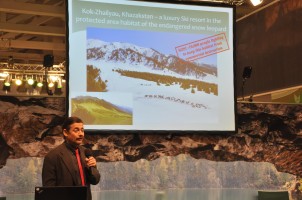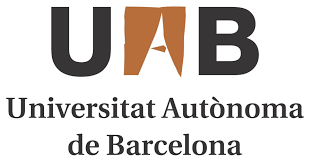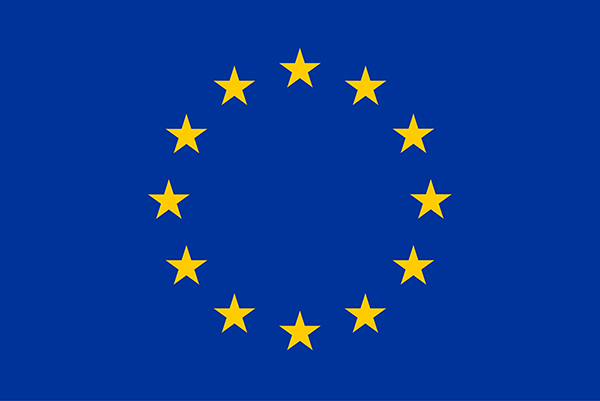
“Dear visitor, you are now entering an environmental disaster zone, formerly known as Kazakhstan’s most wonderful Ile-Alatau National Park.” Will that soon be the message NGOs have to paint on the streets leading from the nation’s capital into this beautiful valley? If the government gets its way and builds that megalomaniac ski resort, they might have to.
The planned Kok Zhailau ski resort near Almaty recently received the Rusty Nail: an anti-award for the worst example of unsustainable tourism, at the International Tourism Fair ITB 2014 in Berlin (see minute 4:20 of the video of the award ceremony). In a region where open resistance to the government is dangerous and rare, this issue has caused enough public resistance to become the first Central-Asian environmental conflict that we now have in our atlas of environmental justice.
The Kok Zhailau ski resort is planned in the center of National natural park Ile-Alatau, 10 km from the city of Alma-Ata. To allow this, the government and president Nazarbayev first decreed that the part of the National park needed for the first stage of construction is now considered the municipal property of Alma-Ata.
The total cost for development of the feasibility report, including the concept of this project was about 20 million dollars. Some $750 million from public funds for infrastructure will be used for the construction of the resort. The state is also seeking $2.1 billion in private investment. This has led to concerns about the potential for corruption and cost-overruns with opponents claiming that this sum is considerably higher than similar projects in developed countries and would cut into the country’s social spending.
NGOs are strongly criticizing the development of the resort. They claim that the Kok Zhailau tract is one of the most affordable and favorite places for Almaty native citizens and guests who are fond of hiking, trekking, biking, skiing, and equestrian tourism and that Almaty citizens will lose their favorite place of leisure and get first the roar of construction equipment and then a ski resort and solid fences around private land holdings, instead of calm and beautiful wild nature.
Local NGOs believe that construction of a resort in the national park contradicts not only the national legislation on protected areas, environmental protection, water, forest and land resources, but contravenes international law as well – in particular, the Convention on Biological Diversity. Animals under threat include the endangered snow leopard – a symbol of both Kazakhstan and the city of Almaty.
The mountain Kumbel is in a zone of ecological stabilization, but its slopes will be remade for skiing runs and gondola roads. Cutting down of 27,5 hectares of a relic coniferous forest for construction of the mountain-skiing village is planned.
Water shortages in the city of Almaty will be exacerbated by the need to make snow on the slopes and the water retention function of the slopes will be impaired. It is assumed that the snowmaking system will be installed on 75% of the slopes. In the absence of precipitation, artificial snow can take up to 326,000 m³ of water. For this they plan to build four underground tanks. It should be noted that according to United Nations, the minimum standards for one person are 20 liters of water per day. Thus, it turns out that 326,000 m3 of water could provide 16,3 million people, or 94 % of the population of Kazakhstan.
The project is supported by the ministry of environmental protection and the president Nazarbayev. At the same time civil activists have organized the civil movement “Protect Kok-Zhailau”.
On January 11, 2013 the Alma-Ata municipality carried out formal public hearings about the resort. The official read the report, and didn’t allow the public to express their opinion, referring to regulations. The public was thus debarred from decision-making process.
Activists sent an open letter to President Nursultan Nazarbayev against the project signed by over 10,000 people about the need for intervention in the illegal actions of regional officials and the ministries. However, they have received no response. Various actions of the public in protest were held, with no reaction from the state. Mass media, trying to publish information on the harmful aspects of the project, received summons and were even closed. But the petition and resistance still keeps growing.
More information on the resistance to this project and the petition is here: http://k-zh.kz/english/ and here: http://www.greensalvation.org/en/





We have already in the EJOLT Atlas and shall have soon other environmental conflicts in Central Asia, such as
http://ejatlas.org/conflict/kumtor-gold-mine-krygyzstan